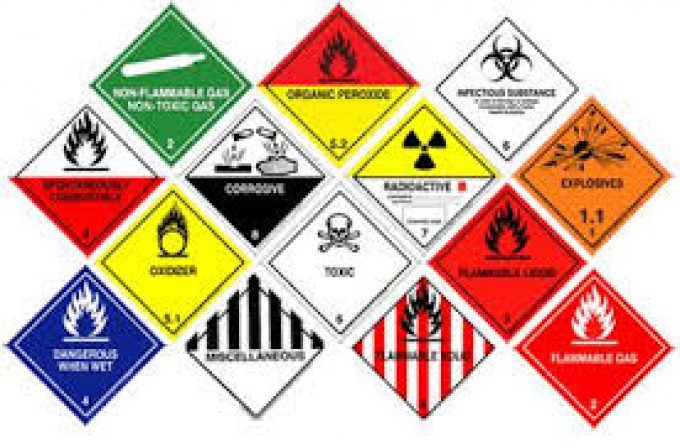Agents not compliant with dangerous goods training rules will be struck-off, warns IATA
Forwarder associations are warning members that they must upload their dangerous goods certificates immediately, or ...
TFII: SOLID AS USUALMAERSK: WEAKENINGF: FALLING OFF A CLIFFAAPL: 'BOTTLENECK IN MAINLAND CHINA'AAPL: CHINA TRENDSDHL: GROWTH CAPEXR: ANOTHER SOLID DELIVERYMFT: HERE COMES THE FALLDSV: LOOK AT SCHENKER PERFORMANCEUPS: A WAVE OF DOWNGRADES DSV: BARGAIN BINKNX: EARNINGS OUTODFL: RISING AND FALLING AND THEN RISING
TFII: SOLID AS USUALMAERSK: WEAKENINGF: FALLING OFF A CLIFFAAPL: 'BOTTLENECK IN MAINLAND CHINA'AAPL: CHINA TRENDSDHL: GROWTH CAPEXR: ANOTHER SOLID DELIVERYMFT: HERE COMES THE FALLDSV: LOOK AT SCHENKER PERFORMANCEUPS: A WAVE OF DOWNGRADES DSV: BARGAIN BINKNX: EARNINGS OUTODFL: RISING AND FALLING AND THEN RISING

US authorities are coming down hard on violations of hazardous materials regulations.
The Federal Aviation Administration has slapped a $54,000 fine on a shipper who failed to declare a hazardous shipment tendered for transport by air.
Gordon Food Services sent a shipment of 30 four-ounce Fryer boil-out foaming tablets, made of corrosive sodium hydroxide, to UPS for air transport from Florida to North Carolina.
Staff at the integrator’s sort facility discovered the shipment had “Danger: May Cause Burn” wording on the inner boxes.
The FAA says the package was not properly marked, labelled or accompanied by shipping papers indicating the amount, type and hazardous nature of the material inside, and also alleges that the company did not provide required emergency response information with the shipment.
In addition, it claims, Gordon Food Services failed to ensure that its employees received required hazardous materials training and failed to include emergency response information with the package.
The fine is raising eyebrows in the industry, as it appears relatively heavy-handed. One senior US airline executive remarked that the FAA rarely charged shippers with hazmat regulation violations.
“They usually just pounce on the airlines, because that’s where the FAA has the most leverage, and then leave it to us to deal with the forwarder,” he said.
Moreover, fines for hazmat violations are seldom that drastic, he noted.
“Initial fines are often mitigated down to 10% of the original, but it looks like this time they may want to make this painful,” he said.
In many cases incidents like this are caught at acceptance and the cargo is returned to the shipper to fix the matter with no drama, he added.
Concerns about undeclared hazmat shipments tendered to cargo carriers have increased in the wake of the rapid rise in e-commerce traffic going by air.
In February, the FAA fined DHL $455,000 for seven hazardous materials violations, and in June, it meted out a $350,000 penalty to Amazon, after the company had tendered a package containing a one-gallon container of “Amazing! Liquid Fire,” a corrosive drain cleaner, for air transport.
The debate over dangers posed by lithium battery shipments has added to these concerns.
In a joint letter sent this month to ministers of trade, industry and transport, and directors of civil aviation in the world’s largest lithium battery-producing countries, IATA, the Global Shippers Forum, International Air Cargo Association and battery manufacturer interest groups called for lithium battery safety regulations to be enforced at the point of origin, including the initial shipper and the battery manufacturer.
As a result of the lithium battery debate, and because of concerns over potential terrorist attacks, cargo staff are more vigilant over unusual shipments, the airline executive noted.
“The FAA is on this kind of thing all the time. Audits are ongoing nearly year-round at one station or another, and then you have multiple follow-up reviews if there are any findings,” he added.
Now it seems that the FAA is also stepping up the sanctioning effort, perhaps with a view to drawing more attention to hazmat concerns.
Comment on this article